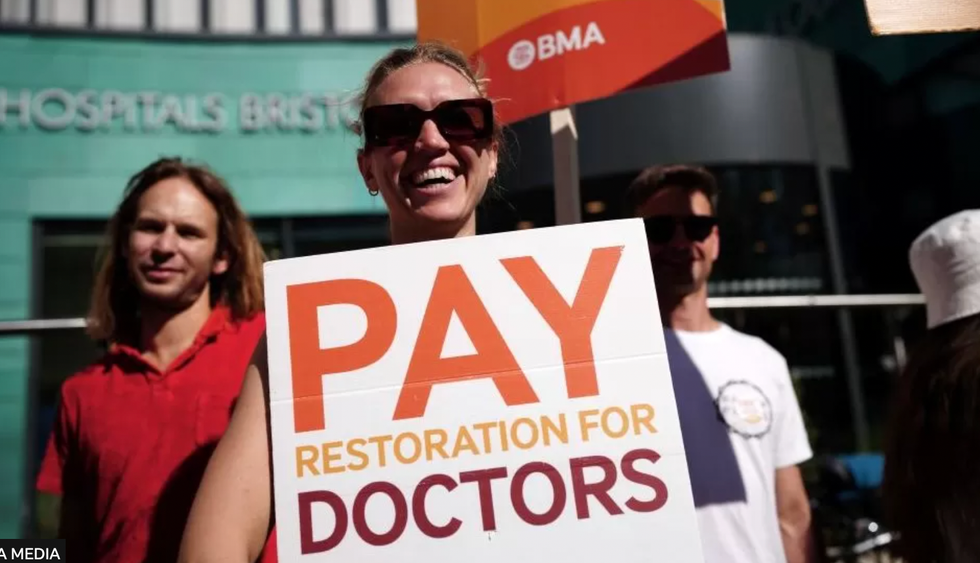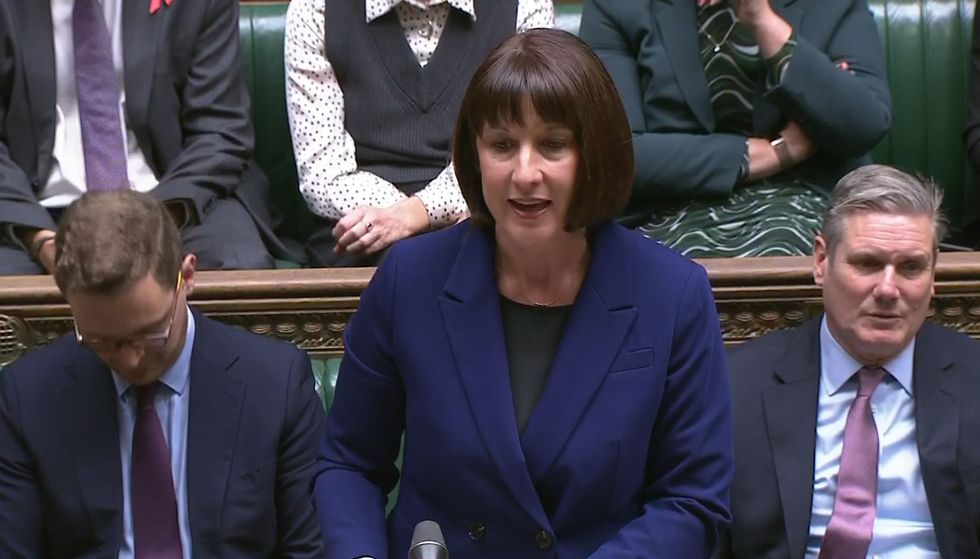Reeves' pledge to raise public sector wages could 'increase' wages
GETTY/PA
Inflation has fallen to two perc cent but Labour's pledge to raise wages in the public sector risks reversing this progress
Don't Miss
Most Read
Trending on GB News
Experts are warning that public sector above-inflation pay rises could hurt the British economy and "leave everyone worse-off" as it could prolong the cost of living crisis.
Earlier this week, Chancellor Rachel Reeves confirmed £9.4billion would be spent on bolstering wages for doctors, nurses, and civil servants.
According to the Cabinet Office's 2024-25 pay remit guidance, Government departments will be allowed to offer a pay rise of up to five per cent.
This is higher than the current consumer price index (CPI) rate of inflation with the latest figures showing it sitting at two per cent for June 2024.
Reeves told the House of Commons that senior civil servants are in line for a pay award of five per cent.
However, experts are sounding the alarm that these pending hikes to wages in the public sector will contribute towards inflation.
Do you have a money story you’d like to share? Get in touch by emailing money@gbnews.uk.

Junior doctors have gone on strike over pay disputes
PAWage increases are considered inflationary and the Bank of England has yet to cut interest rates from a 16-year-high.
The central bank has kept the base at 5.25 per cent since August 2023 in an attempt to ease the CPI rate to its two per cent.
Despite this target being reached, the Bank has held off from announcing any rate cuts in a blow to mortgage holders and those in debt.
If wages are to be raised, analysts from Blick Rothenberg are sounding the alarm inflation could.
Simon Rothenberg, a partner at the firm, noted that pay rises for many NHS workers are "well-deserved" but warned of the potential wider ramifications.
He explained: "Pay rises will put more cash in the pockets of public sector workers, which will likely be spent and increase inflation compared to the pay rises not being given.
"This could lead to the recent reduction in inflation being reversed – and in turn harm the economy.
"As increased inflation raises the cost for businesses who borrow money to expand or start-up, and for investors wanting to invest in those businesses."
In recent years, the UK has been saddled with high inflation as the CPI rate reached a height of 11.1 per cent in October 2022.
While unlikely to reach this height again, the Government's promise of pay rises, including a bumper 22 per cent hike for junior doctors, could see it rise once again.
LATEST DEVELOPMENTS:

The Chancellor is under fire for her promise to raise public sector wages
PARothenberg added: "The public sector pay rise could also affect individuals working in the private sector.
"The previous Government has not raised public sector pay in line with inflation for the last two years.
"This was to avoid compounding the increase in the cost of living which all people in the UK were experiencing as more inflation means higher prices for food, fuel and other necessities."
"But only three weeks into the new Government, despite many difficult decisions being made by the new Chancellor, including cutting the winter fuel payment for all pensioners not in receipt of pension credit, Rachel Reeves still announced pay rises of up to 22 per cent for front-line public-sector workers."








